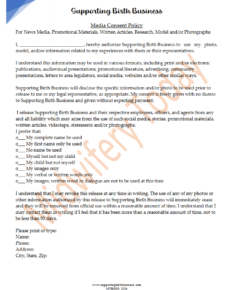
Education Priority Check
Editor’s note: This article first appeared in Midwifery Today, Issue 60, Winter 2001.
Subscribe to Midwifery Today Magazine

Jan (right) with Doña Irene Sotelo
We do midwifery to help families have good, healthy and, if possible, joyful pregnancies and births. Our greatest love should be for women and their babies. The bottom line for you as students and aspiring midwives is to keep your focus on motherbaby—not on getting your professional degree as a certified nurse midwife (CNM), or approval from the North American Registry of Midwives (NARM), etc. Your love of women, babies, families and each other needs to be your focus. You are answering a calling, one of service, not one that is self-serving. If you don’t feel deep in your heart that you are called to be a midwife, please do something else. This is not work in which you will make a lot of money. In these times, it is one of the more uncertain jobs you can undertake.
When I was at the Midwives’ Alliance of North America (MANA) conference, I realized that the focus of some students has moved away from serving women to serving themselves. My associate editor, Jill, mentioned the difficulty in getting dedicated apprentices, stating, “These days, everyone is looking for their ‘numbers’ so that they can fulfill their NARM requirements and quickly set up their own practice.” There is nothing intrinsically wrong with NARM’s requiring a certain number of births, prenatals, etc., in order to prove competency—it is a wonderful way to train and educate midwives. However, there is fallout we may not have expected.
I was having lunch with several early arrivals to the conference when one experienced midwife said, “I’m not going to take apprentices from schools anymore.” Surprised, I asked why. She expressed that these “school midwives” were focused on their own experiences and numbers rather than on the pregnant women my friend was serving. A discussion followed that non-school students are looking for their numbers too. I found it an interesting contrast to the complaint that going to Jamaica was using women from poorer countries to learn our midwifery and get numbers. It seems we can stay home and do the same thing. It basically boils down to the spirit of the practitioner. Ask yourself, “Am I as a student of midwifery serving myself or the families I am involved with?” What is your motivation? This is an important question to ask throughout your whole career.
I think I just realized how much things have changed in the 25 years I have been doing this lifework called midwifery. When I started, we became midwives almost accidentally. (Isn’t that a good name for a movie? The Accidental Midwife.) We set out to help women have homebirths, period. Our concern was whether we knew enough. We were afraid we would miss something important. The entire frame of our reference was women, babies, families, pregnancy and birth. We studied like crazy to make sure we knew enough, but the bottom line was not our license, profession, career or certification. The only bottom line we knew was the families we were “serving.”
I truly believe when we are talking more about ourselves and our politics and profession that we have lost the true essence of midwifery. I don’t care if I am at an ACNM (American College of Nurse-Midwives), MANA or Midwifery Today conference, we should be talking more about birth than ourselves. I exhort you to find a program that is centered on families, a program that also nurtures you as a student.
Another interesting fashion I noticed is that licensed midwives can get their license with 50 births, a certain number of prenatal visits, etc. This, in my opinion, sometimes leads to an arrogance in recently licensed or certified midwives: I have my credential and you don’t. However, many who don’t have credentials prefer it that way. They have done thousands of births over two or three decades of dedication to women. We have created a “license culture” within midwifery that does not always honor or learn from the wise women who have gone before. We have fallen straight into the paternalistic system so prevalent in Western culture.
My hope is that we, as enlightened, alternative thinkers and doers, can somehow do better. I had hoped there would be mutual respect and a sense of harmony, or better yet, unity with a lot of diversity.
It has always been Midwifery Today’s role to encourage all kinds of midwives, doulas and childbirth educators. We still do. There is more than enough room for all kinds of practitioners. We need everyone working to change the way women are treated in childbirth. For 15 years, one of our main mottos has been, “Each one teach one.” We need a great mentoring spirit in this field. And there must be respect in these mentoring relationships, respect flowing in both directions. I ask senior midwives: Please keep taking apprentices. It’s a way in which we can work toward the ideal of one midwife for every mother.
For those who are called to midwifery, there awaits a life that will take all the love you have to give. You have the awesome honor of being “with woman” on her most important life passage. You are there, often the first one to touch the new life sent directly by God to reside awhile on this planet. You are there when people become a family, when maidens become mothers. This is a powerfully spiritual experience and you are there. You are a key person in this life-changing passage. The deepest humility is a necessary characteristic of being a midwife. You will always be learning because the women you continue to serve are your most important teachers. Honor them and their babies by putting them first, before your numbers, before your license—even before yourself.
Toward Better Birth,
jan
Related information:

 Jan Tritten is the founder, editor, and mother of Midwifery Today magazine and conferences. Her love for and study of midwifery sprang from the beautiful homebirth of her second daughter—after a disappointing, medicalized first birth in the hospital. After giving birth at home, she kept studying birth books because, “she thought there was something more here.” She became a homebirth midwife in 1977 and continued helping moms who wanted a better birth experience. Jan started Midwifery Today in 1986 to spread the good word about midwifery care, using her experience to guide editorial and conferences. Her mission is to make loving midwifery care the norm for birthing women and their babies in the United States and around the world. Meet Jan at our
Jan Tritten is the founder, editor, and mother of Midwifery Today magazine and conferences. Her love for and study of midwifery sprang from the beautiful homebirth of her second daughter—after a disappointing, medicalized first birth in the hospital. After giving birth at home, she kept studying birth books because, “she thought there was something more here.” She became a homebirth midwife in 1977 and continued helping moms who wanted a better birth experience. Jan started Midwifery Today in 1986 to spread the good word about midwifery care, using her experience to guide editorial and conferences. Her mission is to make loving midwifery care the norm for birthing women and their babies in the United States and around the world. Meet Jan at our 



















